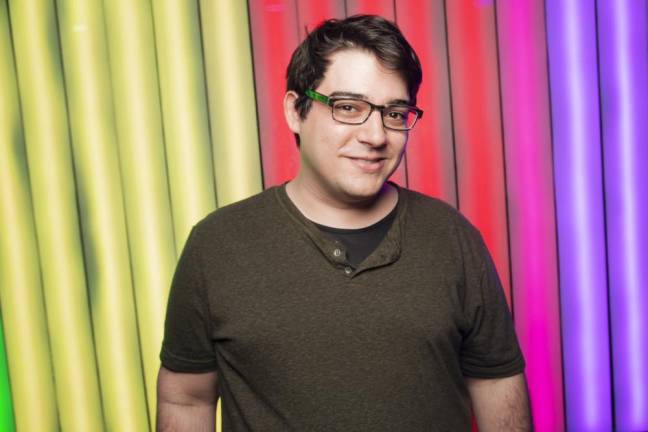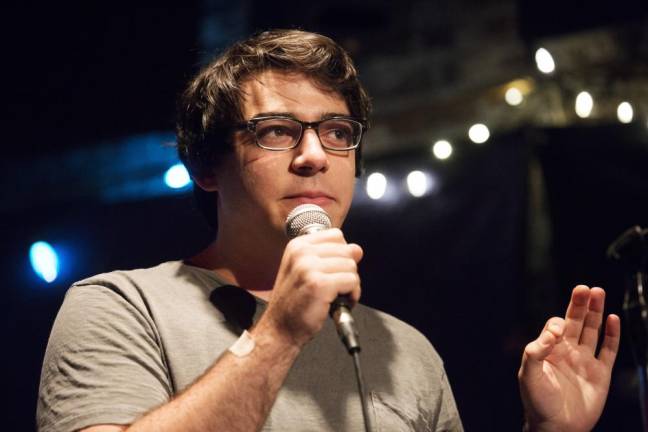‘Upper West Pride’
Stand-up comedian Willie Zabar on humor during COVID, connecting with audiences on Zoom and his love of the UWS


Comedian Willie Zabar is no stranger to the New York comedy scene. After performing stand-up comedy at the Brooklyn Comedy Festival, NYC Sketchfest, the 5th Borough Comedy Festival, and the PIT Loft, Zabar has established himself as a daring, young comedian to watch.
Zabar is also a lifelong New Yorker with deep roots on the Upper West Side — his family owns the specialty food store Zabar’s on 80th and Broadway, which has been serving the neighborhood since 1934. Zabar is thus a true son of the Upper West Side, and his success in comedy has made him a local favorite. We talked to him about how he’s still making people laugh during COVID-19, his love of Riverside Park, and his favorite thing to eat at Zabar’s.
How did you get into comedy?
I always really loved watching comedy. And during high school, I was working at a youth hostel [The Hostel International on 103rd Street and Amsterdam], and one of the other volunteers, a guy named Joe, he was a comic and he would give away free tickets to his show to the hostelers to get people in the seats. And I’d go to the shows, and those are the first comedy shows I ever went to.
One day kind of off-hand, I said, “that’s so cool you do comedy, I’ve always wanted to try that.” And he says, “well, what’s stopping you?” And I didn’t have a good excuse. So within a couple weeks, I did what was basically a high school talent show, and I did stand-up for the first time. And I’ve been doing it ever since.
What’s the hardest thing about being a comedian?
It’s one of those skills that gets very rusty very quickly. It’s not something that you can just rehearse on your own. You can memorize stuff on your own, but you can’t really do stand-up comedy without a room full of people. Right now people have been trying to do comedy over Zoom, [and] we can broadcast easily, but getting those [audience] reactions in the moment is very difficult. Like, I would say, impossible. So, while I’ve been doing a good amount of livestreaming, especially as a character act, I would say it’s damn near impossible to be working on or developing a stand-up act without being in a room with an audience.
What other challenges have you faced making comedy during the coronavirus?
It’s had an interesting effect on how I work. On the one hand, I can’t do live comedy. On the other hand, I’ve become motivated to work on a bunch of projects that I’ve been neglecting. So I would say one thing that’s difficult is...that hardest part of producing content for the internet is getting people to look at it. Because unless you have or until you have a large following on social media, it almost feels like you’re performing for your family at a dinner party.
What have reactions been like to what you’ve posted online?
Mixed (laughs). The feedback has reflected the quality of the work. I struggle with perfectionism. And there’s a lot of projects that I’ve either not released or not undertaken because I had reservations about “oh, is this up-to-snuff?” But the reality of the situation is that the more stuff you make, the better you’ll get at it. The most popular, beloved, prolific people out there make a mix of great stuff and stuff that’s not so great.
I’ve made things where I get a text from someone saying, “Hey, I like that.” I’ve also made things where someone called and be like, “hey, are you okay?”
You grew up on the Upper West Side. What do you love about it?
I grew up on the Upper West Side. I still live on the Upper West Side. It is home. Riverside Park is the best park, and I will not debate you on that. The Soldiers’ and Sailors’ Monument, the City Diner. It’s hard to come up with reasons, because it’s home. It’s like [asking], “why do I love my parents?” There is no place like home. It’s my neighborhood. There’s like individual places that I love, like West Side Kids. There’s this guy named Cary who sells hats and clothing on 80th and Broadway. Shoutout to Cary — he always has great jokes for me. I do not take him up on those offers, but he is a character. I feel very happy to call it my home—I have a lot of Upper West pride.
What was it like growing up around Zabar’s?
Growing up in and around Zabar’s was great. One: awesome food, all the time. Never didn’t have great food, was super lucky and grateful to have had and continue to have it. Getting access to the workings of a business was super influential in how I see the world. Just like knowing, and then by age 16, working with all these amazing people. There are other families within Zabar’s; there are multiple generations and spouses that work there. It feels like I have an extended family that I can visit by just going to 80th Street, which I love.
I have to be constantly learning new things about food. I remember being in middle school, and I think I didn’t know what chorizo was, and some kid was like, “You’re a Zabar, you should know that!” So [there are] many things that I feel like I need to learn and get good at as not to bring shame to my family.
As a small business, especially in difficult times like now, it’s so nice to have loyal customers, and people who are willing to shop local, and help support family-run businesses. It’s something that we’re very grateful for. It’s really appreciated. We could not exist without the support of the people in this neighborhood.
What’s your favorite thing to eat there?
Oooh, that’s a great question.You can’t go wrong with the Nova Scotia salmon. But if I only had access to one Zabar’s product, it would be the coffee.
What’s the number one piece of advice you’d give to someone just starting out in comedy?
Do it as much as possible. Find your balance of writing and performing and do them as much as possible. Because you can’t get better if you’re not performing. The more frequently you are onstage, the less badly you will feel any given time you bomb. And you will bomb; you’ll bomb. Bombing is part of it.
This interview has been condensed and edited.